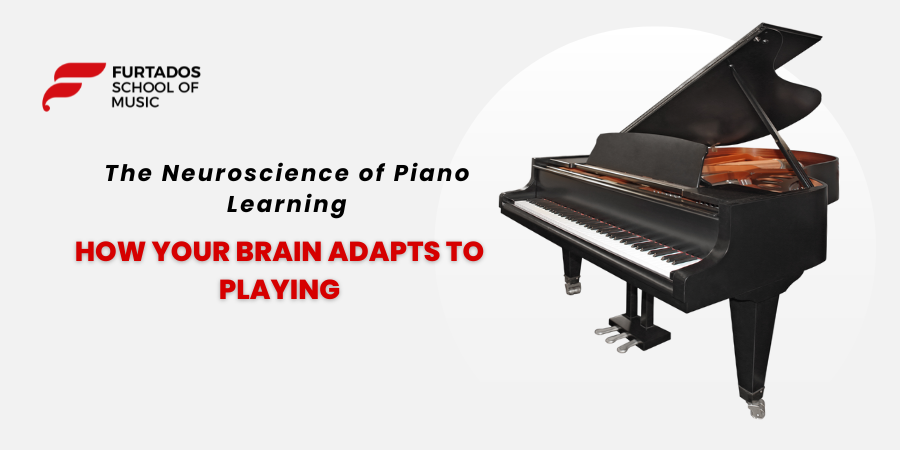The enchanting world of Piano Learning isn’t just about creating melodies; it’s about orchestrating a symphony within your brain. Delving into the depths of this musical journey, we explore the intricate dance between your brain’s neural connections and the art of piano playing. From Learn Piano Online platforms to local Piano Classes Near Me, we delve into the scientific underpinnings of effective piano learning techniques, backed by research and real-world case studies.
Neuroplasticity: Shaping Your Brain Through Music At the heart of piano learning lies the concept of neuroplasticity – the brain’s remarkable ability to reorganize and adapt. As you navigate the piano’s keys and harmonies, your brain forms new connections, enhancing coordination, memory, and creative expression. A study by Dr. Sara L. Bengtsson and her team at the Karolinska Institute in Stockholm demonstrated that professional pianists exhibit structural changes in brain regions associated with finger movements and auditory processing, highlighting the profound impact of piano practice on brain structure.
Practice Strategies Rooted in Neuroscience
- Deliberate Practice and the Ericsson Model: Renowned psychologist Dr. K. Anders Ericsson’s research on deliberate practice underscores its effectiveness in skill acquisition. Breaking down complex pieces into manageable segments and focusing on precise execution engages the brain’s neuroplastic responses. Incorporating these techniques into your piano practice, whether through Piano Classes Near Me or online platforms, can lead to accelerated learning. (Ericsson et al., 1993)
- Chunking and Cognitive Load Theory: Cognitive psychology’s “chunking” principle, advocated by George A. Miller, suggests that breaking information into smaller, meaningful groups enhances memory and learning. Applying this principle to the piano, grouping notes or chords into patterns facilitates quicker recall and smoother playing. (Miller, 1956)
- Variability in Practice and the Contextual Interference Effect: Research on the “contextual interference effect” reveals that interleaving different practice tasks enhances long-term retention and transfer of skills. Incorporating varied exercises, tempos, and musical styles challenges your brain, fostering adaptability. (Magill and Hall, 1990)
Embarking on the Journey with Furtados School of Music While our intent is to provide detailed insights rather than promotional content, Furtados School of Music is committed to fostering effective learning environments. Our instructors, armed with insights from cognitive science and neuroscience, guide students in harnessing neuroplasticity. By combining our expertise with your dedication, whether through Learn Piano Online resources or local Piano Classes Near Me, we aim to facilitate transformative learning experiences.
The Melodic Path of Brain Evolution
Mastering the piano is a captivating voyage that transcends musical notes. Your brain’s adaptability plays a pivotal role in this journey. By embracing the principles of neuroplasticity and integrating evidence-based techniques into your practice routine, you unlock the potential to accelerate your piano proficiency.
Let your exploration of melodies and harmonies be a tribute not only to the world of music but also to the symphony of change orchestrated within your brain.
